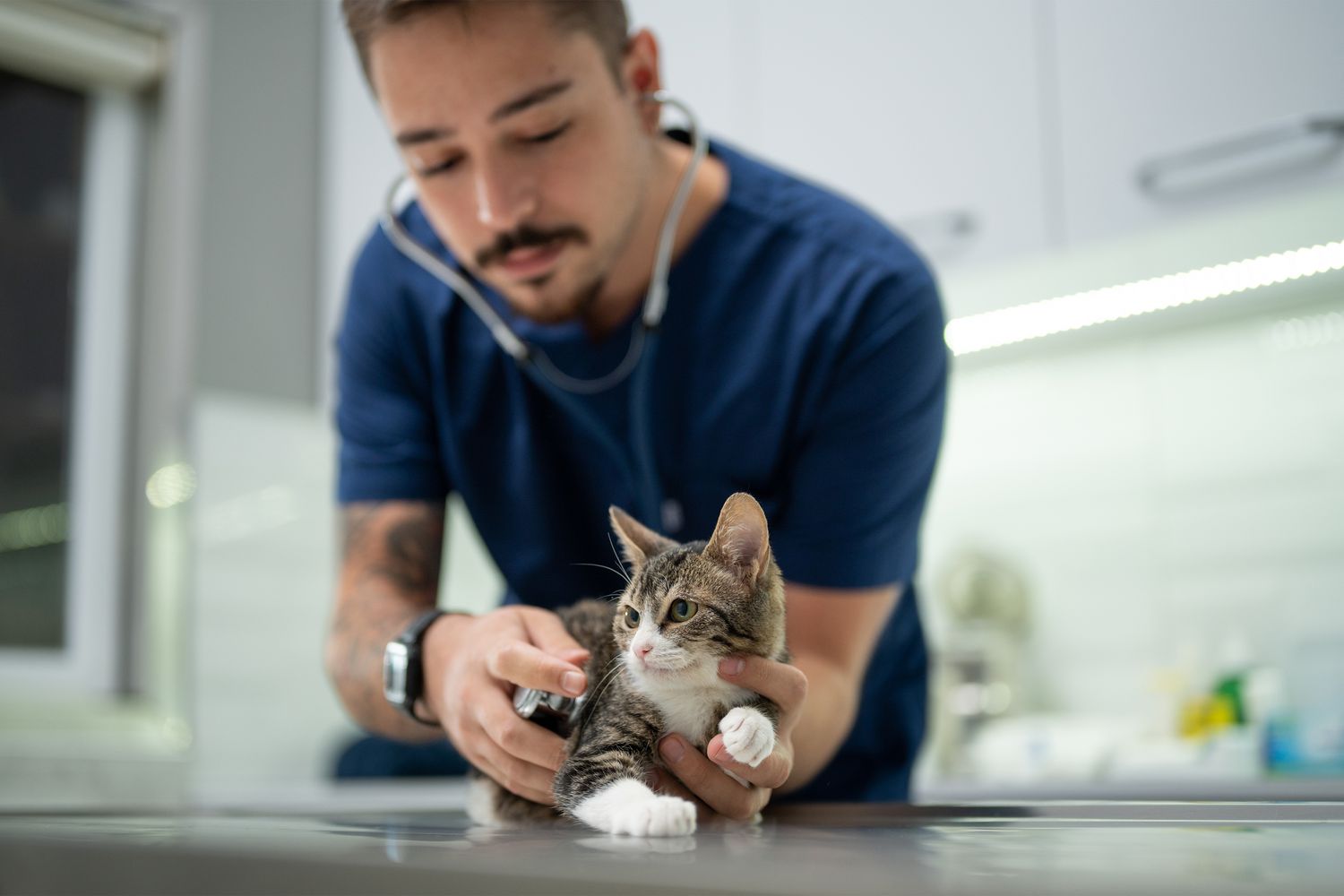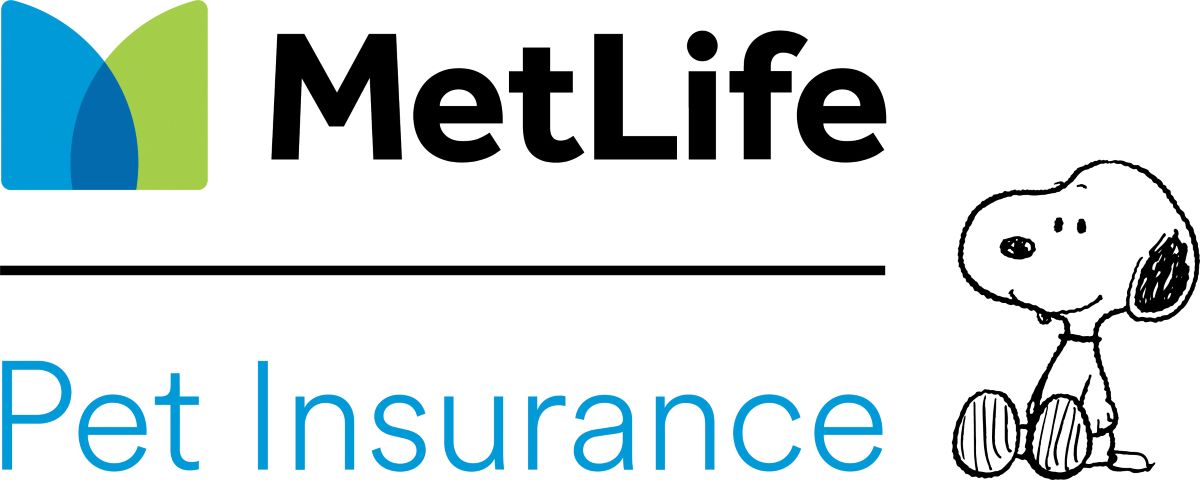

Finance
How Much Is Pet Insurance In Florida?
Modified: December 30, 2023
Looking for pet insurance in Florida? Find out the cost and coverage options for pet insurance in Florida's finance market. Don't miss out on protecting your furry friend!
(Many of the links in this article redirect to a specific reviewed product. Your purchase of these products through affiliate links helps to generate commission for LiveWell, at no extra cost. Learn more)
Table of Contents
Introduction
As a pet owner in Florida, it’s important to consider all aspects of your pet’s well-being, including their healthcare needs. Just like humans, pets can encounter unexpected health issues that require medical attention. This is where pet insurance comes into play.
Pet insurance is a type of coverage that helps offset the cost of veterinary care for your furry friend. It provides financial peace of mind and allows you to give your pet the best possible care without worrying about the expense.
In the Sunshine State, there are numerous factors that can affect the cost of pet insurance. Understanding these factors and the average cost of coverage can help you make an informed decision when choosing a plan for your pet.
In this article, we will delve into the factors that determine pet insurance costs in Florida, discuss the average cost of coverage, explore the types of pet insurance plans available, highlight the benefits of having pet insurance, offer tips for comparing quotes, and provide guidance on finding affordable pet insurance in the state.
Whether you have a playful pup, a cuddly cat, or any other type of beloved pet, having pet insurance can offer you financial security and the ability to provide necessary medical care when your pet needs it most.
So, let’s dive in and uncover the ins and outs of pet insurance in Florida!
Factors that Determine Pet Insurance Costs in Florida
When it comes to pet insurance costs in Florida, several factors come into play. These factors can influence the overall cost of your pet insurance premiums. Understanding what these factors are can help you make an informed decision when selecting a pet insurance plan.
One of the primary factors that impact pet insurance costs is the age of your pet. Younger pets generally have lower insurance premiums compared to older pets. This is because younger pets are less likely to have pre-existing conditions or require extensive medical treatment.
The breed of your pet is another important factor that insurers consider. Some breeds are more prone to certain genetic conditions and have a higher risk of developing health problems. Insurers may adjust their premiums accordingly to account for potential health issues associated with specific breeds.
Additionally, the type and level of coverage you choose can significantly affect the cost of your pet insurance. Basic plans that cover essential veterinary care such as vaccinations and routine check-ups tend to have lower premiums compared to comprehensive plans that cover accidents, illnesses, and chronic conditions.
The geographical location in Florida where you reside can also influence the cost of pet insurance. Different regions may have varying veterinary costs and access to specialized care. Urban areas tend to have higher veterinary expenses, which can impact the overall cost of your insurance premiums.
Furthermore, the deductible and reimbursement percentage you choose will determine the out-of-pocket expenses you’ll have to pay. A higher deductible and a lower reimbursement percentage will result in lower premiums but higher cost-sharing when you file a claim.
Lastly, pre-existing conditions are another crucial factor that insurers take into account. Pre-existing conditions are health issues that your pet has before getting insurance coverage. Most pet insurance policies do not cover pre-existing conditions, so the presence of a pre-existing condition may impact your ability to obtain coverage or influence the cost of your premiums.
By considering these factors, you can assess your pet’s health needs and budget to determine the most suitable pet insurance plan for your furry companion. It’s important to shop around and compare different options to find a plan that provides the right level of coverage at an affordable price.
Average Cost of Pet Insurance in Florida
When determining the average cost of pet insurance in Florida, it’s important to consider various factors such as the age, breed, and health condition of your pet, as well as the type of coverage you choose. On average, pet insurance premiums in Florida can range from $20 to $50 per month for dogs and $10 to $30 per month for cats.
The age of your pet plays a significant role in determining the cost of pet insurance. Generally, younger pets tend to have lower premiums compared to older pets. For example, a young and healthy dog may cost around $20 to $30 per month for basic coverage, while an older dog with pre-existing conditions may have higher premiums of $40 to $50 per month.
The breed of your pet can also impact the cost of insurance. Certain breeds are more prone to genetic health issues, which can increase premiums. For instance, large breed dogs like German Shepherds or Great Danes may have higher insurance costs compared to smaller breeds like Chihuahuas or Shih Tzus.
The type of coverage you select also affects the cost. Basic plans that cover routine care and vaccinations tend to be more affordable compared to comprehensive plans that provide coverage for accidents, illnesses, and chronic conditions. The more extensive the coverage, the higher the premium.
It’s important to note that these are average costs and can vary depending on the insurance provider and specific policy details. Pet insurance companies in Florida offer a range of plans with different levels of coverage and pricing options, allowing you to find a policy that aligns with both your pet’s needs and your budget.
When considering the cost of pet insurance, it’s essential to weigh it against the potential savings in veterinary expenses. Insurance can help offset the cost of unexpected medical care, including surgeries, medications, and emergency treatments. It provides financial peace of mind, ensuring that you can provide your pet with the necessary care without incurring significant financial burden.
Comparing quotes from different insurance providers and understanding the coverage options can help you find the most affordable and suitable pet insurance policy for your beloved furry friend in Florida.
Types of Pet Insurance Plans in Florida
When it comes to pet insurance plans in Florida, there are several options available to provide coverage for your furry friend’s healthcare needs. Understanding the different types of pet insurance plans can help you choose the most suitable option for your pet and budget.
1. Accident-Only Coverage: This type of plan covers medical expenses related to accidents, such as broken bones, lacerations, or ingestion of foreign objects. Accident-only coverage is generally more affordable but doesn’t include coverage for illnesses or pre-existing conditions.
2. Illness Coverage: Illness coverage provides coverage for a wide range of illnesses, including infections, allergies, diabetes, and cancer. This plan can be a good fit if you want coverage for non-accidental health issues.
3. Comprehensive Coverage: Comprehensive plans offer the most extensive coverage, including both accidents and illnesses. They cover a broad range of veterinary services, including diagnostics, treatments, surgeries, and medication. Comprehensive plans typically have higher premiums but provide more comprehensive protection for your pet.
4. Wellness Coverage: Some insurance companies offer optional wellness coverage that focuses on preventive care, such as vaccinations, annual exams, dental cleanings, and flea and tick prevention. This coverage helps offset the cost of routine care expenses, but it’s important to assess whether the additional cost is worth the benefits for your pet.
5. Pre-Existing Condition Coverage: Most pet insurance policies do not cover pre-existing conditions. However, some companies offer limited coverage for pre-existing conditions after a waiting period. This can be beneficial for pets with manageable pre-existing conditions, but it’s essential to read the policy terms and conditions carefully.
It’s important to carefully review the details and limitations of each plan before making a decision. Consider your pet’s specific healthcare needs, budget, and any exclusions or waiting periods associated with the coverage. Discussing options with insurance providers and seeking advice from your veterinarian can also help you make an informed choice.
Remember, each pet insurance policy is different, so it’s crucial to compare plans and ask questions to ensure you choose a plan that suits your pet’s needs and provides adequate coverage in Florida.
Benefits of Having Pet Insurance in Florida
Having pet insurance in Florida offers many advantages and can be a wise financial decision for pet owners. Here are some of the key benefits of having pet insurance for your furry friend in the Sunshine State:
1. Financial Protection: Pet insurance provides financial protection by helping to cover the cost of unexpected veterinary expenses. In the event of an accident or illness, pet insurance can help mitigate the financial burden associated with diagnostic tests, surgeries, medications, and emergency care.
2. Peace of Mind: Knowing that you have pet insurance gives you peace of mind, knowing that you can provide necessary medical care for your pet without worrying about the cost. You can make medical decisions based on your pet’s needs rather than the financial implications.
3. Access to Quality Care: With pet insurance, you have the flexibility to choose the best veterinary care for your pet. You can seek treatment from specialized veterinarians or veterinary hospitals without the worry of being limited by your financial resources.
4. Coverage for Chronic Conditions: Chronic conditions, such as allergies, diabetes, or arthritis, can require long-term management. Pet insurance can help cover the ongoing costs associated with these conditions, including medications and regular vet visits.
5. Protection Against Accidents: Florida is known for its outdoor activities and ample opportunities for pets to enjoy the great outdoors. However, accidents can happen, from encounters with wildlife to mishaps at the dog park. Pet insurance can provide coverage for accidents, ensuring that your pet receives the necessary medical attention without delay.
6. Flexibility in Coverage Options: Pet insurance plans offer various coverage options that can be tailored to fit your pet’s specific needs and your budget. Whether you opt for accident-only coverage, illness coverage, or comprehensive plans, you have the flexibility to choose the level of protection that suits your pet’s healthcare requirements.
7. Assistance with Routine Care: Some pet insurance plans also offer coverage for routine care, including vaccinations, annual exams, and preventive treatments. This can help offset the cost of routine healthcare expenses and encourage proactive preventative care for your pet.
8. Support During Emergencies: Florida is prone to natural disasters such as hurricanes, which can require emergency evacuations. Pet insurance can help cover the cost of emergency boarding or veterinary care in case of an evacuation, ensuring your pet’s safety and well-being during challenging times.
By having pet insurance in Florida, you can ensure that your beloved companion receives the best possible healthcare without placing a strain on your finances. It provides peace of mind, protection against unexpected veterinary expenses, and the ability to make medical decisions based on your pet’s needs rather than financial limitations.
How to Compare Pet Insurance Quotes in Florida
When looking for pet insurance in Florida, it’s essential to compare quotes from different insurance providers to find the best coverage for your furry companion. Here are some key factors to consider when comparing pet insurance quotes:
1. Coverage Options: Evaluate the types of coverage offered by each insurance provider. Consider whether they offer accident-only coverage, illness coverage, or comprehensive plans. Assess the specific services and treatments covered under each plan to ensure they align with your pet’s healthcare needs.
2. Limits and Caps: Check for any annual or lifetime limits on coverage. Some insurance plans impose caps on particular treatments, conditions, or overall policy limits. Make sure the limits are reasonable and sufficient to cover potential veterinary expenses for your pet.
3. Deductibles and Reimbursement: Look at the deductibles and reimbursement percentages offered by different insurance providers. A higher deductible may result in lower premiums but higher out-of-pocket expenses. Consider how much you are willing to pay upfront before insurance coverage kicks in, and choose a reimbursement percentage that suits your budget.
4. Exclusions and Waiting Periods: Read the policy carefully to understand any exclusions and waiting periods. Exclusions may include pre-existing conditions or specific breeds. Waiting periods are the time you must wait after purchasing the policy before coverage becomes active for certain conditions. Ensure that the exclusions and waiting periods are reasonable and align with your pet’s health history.
5. Customer Reviews and Reputation: Research the reputation and customer reviews of insurance providers. Look for feedback on their claims process, customer service, and overall satisfaction. Consider the experiences of other pet owners to gauge the level of trust and reliability of each insurance company.
6. Premiums: Compare the premiums quoted by each insurer for the coverage options you are considering. Remember that the cheapest option may not always provide the level of coverage or customer service you desire. Assess the value of the coverage in relation to the cost to determine which quote offers the best overall value.
7. Additional Benefits: Consider any additional benefits or features offered by the insurance providers. Some companies may offer perks such as 24/7 helplines, telemedicine consultations, or access to online resources and educational materials for pet owners.
By carefully comparing these factors, you can make an informed decision when choosing a pet insurance provider in Florida. Take the time to assess your pet’s unique needs, consider your budget, and review the policy details to ensure that you are selecting the best coverage for your furry friend’s healthcare requirements.
Tips for Finding Affordable Pet Insurance in Florida
While pet insurance provides important financial protection for your furry friend, finding affordable coverage is often a top priority for pet owners in Florida. Here are some tips to help you find affordable pet insurance in the Sunshine State:
1. Compare Multiple Quotes: Take the time to gather quotes from multiple pet insurance providers. Each company may offer different coverage options and pricing structures, so comparing quotes can help you find the most affordable option for your pet.
2. Assess Your Pet’s Needs: Consider your pet’s age, breed, and any pre-existing conditions when selecting coverage. Understanding your pet’s specific healthcare requirements can help you choose a plan that provides the necessary coverage without paying for services your pet may not need.
3. Opt for Higher Deductibles: Choosing a higher deductible can help lower your monthly premiums. If you have savings set aside for pet emergencies, a higher deductible can be a cost-effective option. However, make sure you can comfortably afford the deductible amount in case of an unexpected veterinary expense.
4. Consider Coverage Limits: Evaluate the coverage limits on different policies. While higher limits may provide more comprehensive coverage, they also come with higher premiums. Assess your pet’s potential healthcare expenses and choose coverage limits that are reasonable for your budget.
5. Look for Wellness Plans as Add-Ons: If your budget allows, consider adding a wellness plan to your pet insurance coverage. Wellness plans cover routine care expenses like vaccinations, check-ups, and preventive treatments. While this may increase your overall premium, it can help offset routine care costs and potentially save money in the long run.
6. Seek Discounts: Some pet insurance providers offer discounts for various reasons, such as insuring multiple pets or being a member of certain organizations. Inquire about available discounts to see if you qualify for any cost-saving opportunities.
7. Consider Your Budget Long-Term: While it may be tempting to choose the cheapest premium, it’s important to consider the long-term affordability of the coverage. Ensure that the policy you select fits comfortably within your budget not just now, but in the future as well.
8. Read Policy Details Carefully: Before committing to a pet insurance plan, thoroughly read the policy details, including the terms and conditions, coverage exclusions, and waiting periods. Being aware of the specifics of the policy will help you avoid surprises and ensure you’re getting the coverage you need at an affordable price.
By utilizing these tips, you can find affordable pet insurance in Florida that suits your budget and provides the necessary coverage for your beloved pet’s healthcare needs. Remember to prioritize the value of the coverage over the price alone, as quality protection is essential for your pet’s well-being.
Conclusion
Pet insurance in Florida is an essential investment for pet owners who want to provide their furry companions with the best possible healthcare. By understanding the factors that determine pet insurance costs, such as age, breed, and coverage type, you can make informed decisions when selecting a policy.
While the average cost of pet insurance in Florida can vary depending on these factors, it offers numerous benefits. Pet insurance provides financial protection, peace of mind, and access to quality veterinary care. It can cover accidents, illnesses, chronic conditions, and even routine wellness care.
To find the most suitable pet insurance plan in Florida, it’s important to compare quotes from different providers, consider the coverage options, limits, deductibles, and reimbursement percentages. Reading the policy details, examining customer reviews, and assessing additional benefits can also help in making an informed decision.
When looking for affordable pet insurance in Florida, remember to assess your pet’s needs, including their age, breed, and health condition. Opting for higher deductibles, considering coverage limits, and exploring discounts can help make coverage more affordable while still providing sufficient protection.
Ultimately, the goal is to provide the best care for your pet without facing financial strain. By being proactive in researching and comparing pet insurance options, you can find a policy that not only fits your budget but ensures that your furry friend receives the necessary medical attention when they need it most.
So, take the time to explore the variety of pet insurance plans available in Florida and choose one that offers the right coverage, peace of mind, and financial security for you and your beloved pet.














